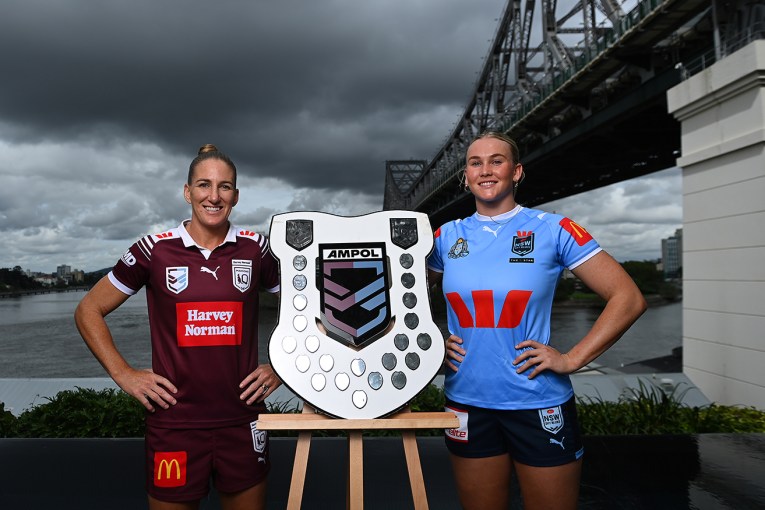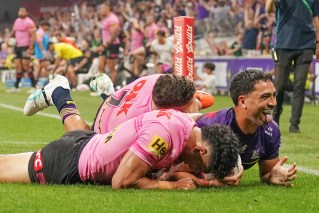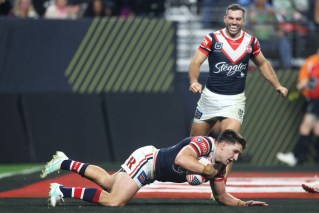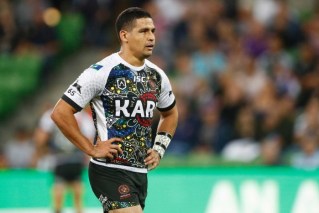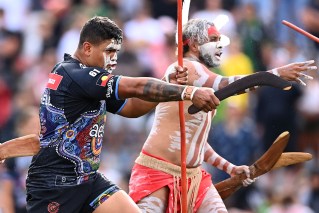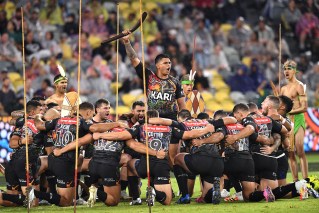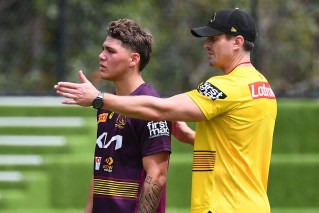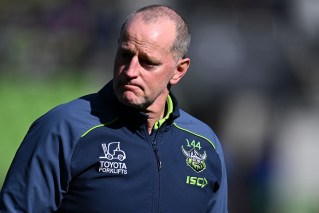Why the NRL cannot turn its back on technology
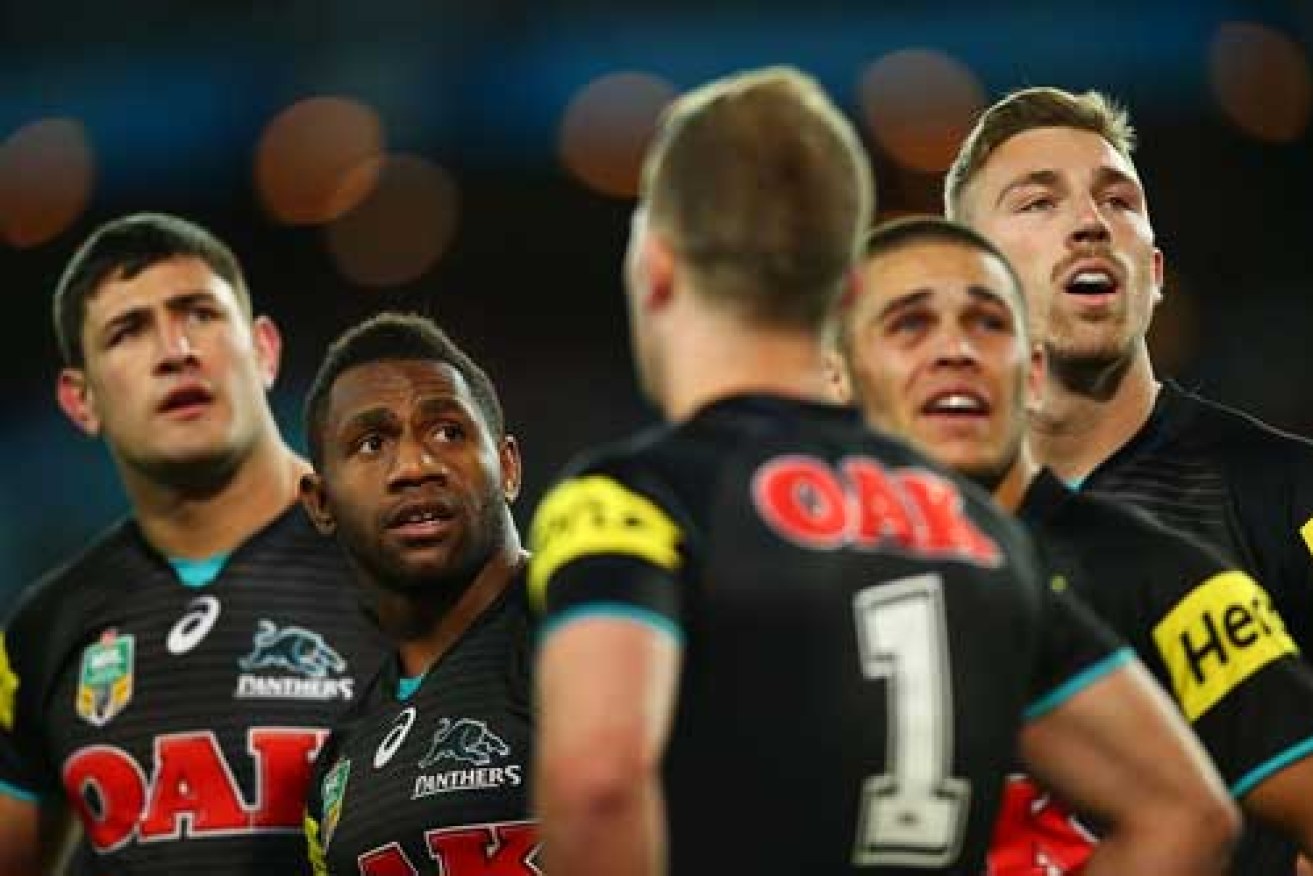
All eyes on the eye in the sky. Photo: Getty
If something is “killed” or “endangered” by improved surveillance technology, did it deserve to exist in the first place?
Sure, there are exceptions to a negative answer: resistance to totalitarianism and tyranny has always been susceptible to tapped phone lines and high powered binoculars. When exclusive technology is in the hands of a select few, it can always be abused.
But when the populace has a greater access to information, the things that suffer are those which do not stand up to scrutiny. Truth is unforgiving to those with something to hide.
• Steve Mascord’s finals preview
• The New Daily’s team of the year
I mention this in reference to the outcry on Sunday about what would have been winger Sisa Waqa’s second try in the elimination final loss to Canterbury at AAMI Park.

All eyes on the eye in the sky. Photo: Getty
The tackle count was wiped clean on two occasions during a spectacular build-up, with Waqa taking a miraculous final pass to dot down between the posts for what would have been his second try in three minutes.
Canterbury’s halftime lead of 24-0 would have almost certainly become 25-10; a comeback was well and truly underway.
But the video referees wound back the tape and found the tiniest bobble by prop Jesse Bromwich, who seemed to juggle the ball as it made contact with a defender. The spectacular had been erased by the inane, and the emotional reaction bordered on hysterical.
Very little of the argument seemed to centre on whether the fumble had actually occurred.
Rugby league, being a regional sport, can make very swift rule changes without consulting complicated hierarchical structures (although the constant meddling with the rules in the NRL infuriates most English fans).
That means it’s a high profile professional sport that should be on the cutting edge of technological advancement.
The players are there for our amusement. They have no more claim on privacy than Donald Duck.
But the sport clearly hasn’t read anything by Philip K Dick. It doesn’t have a philosophical basis for its interactions with video, semiconductors and SD cards. There is no moral underpinning.
The refrain from commentators on Sunday was that all the stoppages – including those involving foul play (real and imagined) – were against “the spirit of the game”.
Your correspondent did find the regular patches of dead-air jarring. But turning off technology will consign rugby league to the dustbin of history much more quickly than might eventually be the case anyway, because of other factors.
Firstly, plans to conduct ‘silent reviews’ of tries before a conversion is taken would have avoided the Waqa no-try. Everyone else on the field has to react quickly – who not require the same of the video referees?
A try is scored, in the view of the on-field officials. An extremely highly-paid TV ad break follows the try. During that 60 seconds, the goal-kicker places the ball on its tee and the video referees check the replay.
After the ad break, the try is either chalked off or the goalkick is taken. Would they have found Bromwich’s bobble in 60 seconds? Highly unlikely.

‘No try’ said the video referee. Photo: AAP
Colleague Brad Walter suggested a solution for players ‘staying down’, bringing the video referee into proceedings and stopping things even more during general play, that was first raised when the new concussion rules were introduced at the start of the year.
That is: if you do not get straight to your feet after a tackle that was anywhere near the shoulders or above, you must leave the field for concussion testing. No exceptions. That should eliminate some of our Academy Award nominees.
With these two measures, we have not regressed with our interactions with technology but we have removed annoying stoppages effectively.
Rugby league only has something to fear from technology if rugby league has something to hide. To say we shouldn’t have cameras and microphones on the field is like saying we are invading someone’s privacy during a sex scene in a movie.
They are only there for our benefit. The sole reason an NRL game is played and the players are there is for our amusement. They have no more claim on privacy than Donald Duck.
Longer term, many, many of our cherished traditional pursuits will not stand up to the scrutiny of technology. There will be GPS units in rugby league balls to detect if they are thrown forward, cameras and microphones on every player which will reveal racial abuse and tiny rule infractions, read-outs that tell you in real time exactly where and when a kick will land.
If rugby league becomes meaningless at that point, then it will just go the way of the Roman gladiators – it will become a brutal anachronism.
In the meantime, many other cherished, traditional pursuits are in much more immediate danger due to social media and GPS technology.
Take, say, adultery …
